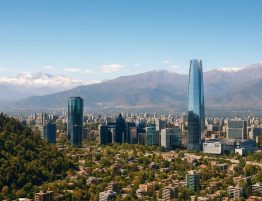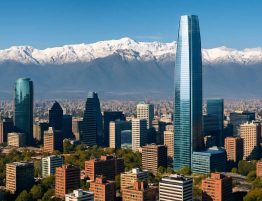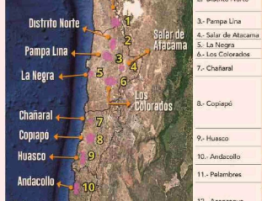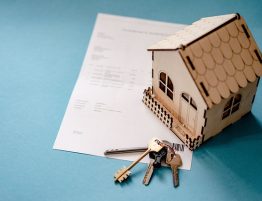
Real Estate and Property Rights
Unlike many other countries, Chile does not impose significant restrictions on foreign individuals or entities purchasing property. However there a few key points to consider:
Foreign investors have the same property rights as Chilean citizens, although foreigners must secure a RUT from the Chilean Internal Revenue Service (SII) to complete a property purchase. All property purchases must also be registered in the Chilean Real Estate Registry (Conservador de Bienes Raíces) to ensure legal ownership. It is worth noting that it is not a requirement to reside in Chile, investors can buy and manage property remotely.
The south of Chile in particular, boasts natural beauty and unspoiled environments, making this land attractive not only for personal enjoyment but for tourism development. The area also offers a compelling value proposition: with vast areas of land for sale for significantly less than comparable landscapes in the U.S., for example.
The strong rule of law and stable policies guarantee that upon investing in a farm or forest, property rights are secure for the long term. This is attractive for investors since buying acreage is beneficial not only for potential financial return, but as a lifestyle asset. Investing in land in the Southern Hemisphere can also be valuable since it provides portfolio diversification and year-round income from tourism.
When it comes to purchasing real estate, this can be done through a Chilean corporation or through an individual name. Many investors choose to purchase through a Chilean company since it has the benefit of tax optimization. It provides the opportunity to reinvest rental earnings into another property via the company, whereas an individual would pay personal income tax yearly on rental income.
Another advantage is limited liability and flexibility as your personal assets are shielded by the company when it comes to any liabilities related to the property. It also makes the financing process easier. Banks in Chile often prefer lending to an established local entity which has a credit history. The process of obtaining a RUT, signing contracts and paying taxes is also dealt with by the company. A corporate structure is also highly recommended for those looking to acquire multiple properties, since it centralizes management and accounting.
In an urban area, particularly in Santiago, land prices are higher. The median price per square metre of land is approximately 403,000 CLP, translating to about 4.03 billion CLP per hectare. This indicates strong demand for urban real estate, providing an opportunity for investors to capitalize on high rental yields.
Land Value Appreciation & Passive Investment
Land in rural areas is expected to appreciate by 10% annually, caused by increasing demand and Chile’s stable economy. With the average price per hectare being around 25 million CLP in 2025, it is an affordable but lucrative investment compared to other regions across the world.
Minimal Taxes & Low Maintenance Costs
Tax on land ownership is ‘contribuciones’ otherwise known as property tax. This means there are no additional costs for utilities or maintenance unless the land is being actively developed. Unlike developed urban properties, rural land has low carrying costs, making it a passive and cost-effective investment for Chileans and foreigners alike.
Strategic and Natural Resources
Ownership of countryside land provides access to valuable natural resources, including water rights and agricultural potential. This is particularly valuable in southern Chile where research units focus on sustainable land use. Following global trends, strategic resources like fresh water and renewable energy land are expected to gain significant value.
Investment & Residency Considerations
Investing $500,000 USD or more in Chile may be considered for an investor visa, provided the investment is directly related to the production of goods or services that contribute to the Chilean economy. Qualifying investments typically involve projects with demonstrable economic impact, such as establishing or expanding productive enterprises in sectors like industry, agriculture, technology, or tourism. Investments in passive assets, such as purchasing land for speculative purposes or residential real estate for simple rental income, generally do not qualify. It is strongly recommended to consult with legal and financial advisors specializing in Chilean investment and immigration law to understand the specific requirements and ensure compliance.
Buying Opportunities: Direct Purchase & Auctions
Investors can buy directly from sellers to take full advantage of auctions, providing significant cost savings. Judiciary auctions typically offer real estate at 30% below market price, creating opportunities for high returns. Moreover, private auctions provide competitive pricing, at times allowing investors to acquire land at a discount compared to conventional sales.
To summarise, Chilean countryside land is a secure, low-risk investment with substantial upside potential.
Real Estate Investment Opportunities
The real estate market in Chile presents both challenges and opportunities for investors. While the industry has faced difficulties, the rental market has seen growth due to increased demand.
Profitability in the Metropolitan Region
Communes in the Metropolitan Region, such as Quilicura, Renca, and Pudahuel, have shown strong profitability for real estate investment. This is attributed to accessible sale prices, high rental demand, and good connectivity. Investors focus on maximizing profitability by finding a balance between rental prices and property values. In 2024, Quilicura led with the highest profitability (5.9%), followed by Renca and Pudahuel (both at 5.3%).
Communes with Lower Profitability
Communes like La Florida, Peñalolén, Providencia, La Reina, and Ñuñoa have shown lower profitability (ranging from 3.7% to 3.9%). While these areas have good rental demand and amenities, higher purchase prices contribute to lower profitability. However, they remain attractive to conservative investors seeking stability and long-term value.
Regional Profitability
Outside the Metropolitan Region, Antofagasta remains a strong option for real estate investment due to consistent rental demand linked to the mining industry. Coquimbo and La Serena have seen decreased profitability due to an oversupply of rental housing, while Concepción and Concón have remained relatively stable.
Investment in Houses vs. Apartments
Apartments are generally preferred by investors over houses due to higher rental profitability, shorter vacancy times, and lower maintenance costs. The house market is more oriented towards buyers looking for their own residence, rather than investment properties. However, there are niche markets for high-end rentals in premium areas and land purchases for development projects.
Legal Roadmap for Foreign Real Estate Investors in Chile
Investing in real estate in Chile can be highly profitable—but also legally complex for foreign buyers unfamiliar with local rules. At Becker Abogados, we provide end-to-end legal support for international investors entering the real estate market. Below is a simplified roadmap of the key legal steps involved in purchasing and owning property in Chile:
- Obtain a Chilean Tax ID (RUT): Required for any foreign individual or entity engaging in transactions.
- Power of Attorney (if abroad): Legal authorization for a representative to act on your behalf in Chile.
- Legal Due Diligence: Review of land title, liens, urban regulations, and ownership chain.
- Purchase Agreement Drafting: Tailored contracts that protect your investment and ensure enforceability.
- Public Deed Execution & Notarization: Required step for legal transfer of ownership.
- Registration in the Real Estate Registry: Final step to acquire full legal property rights.
- Tax Strategy & Reporting: Assistance with tax optimization and compliance.
Whether you’re acquiring rural land, urban property, or investing through a Chilean company, our legal team ensures full protection throughout the process.









